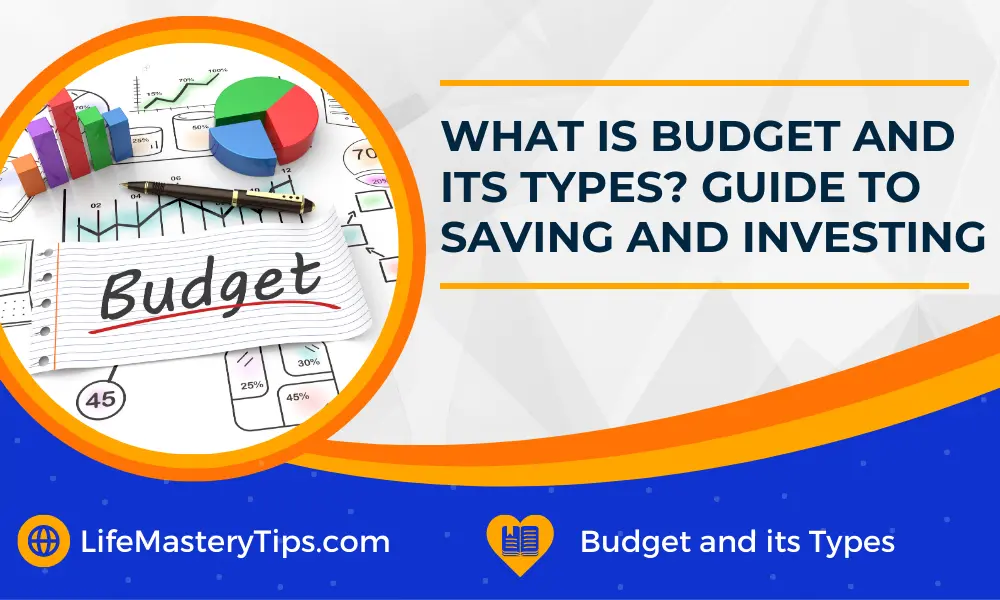You want to save money, but you’re short on cash. You’re not alone: many people struggle with saving money in this day and age, especially when they have so many other priorities. This guide will show you ten different ways that you can save money on a tight budget. Some of these tips are simple lifestyle changes, while others require more effort and planning. But all of them are worth the time invested!
What Does It Mean To Save Money?
Saving money is simple. It’s simply not spending money! Saving money means that you’re setting aside some of the money that you earn, and putting it into a savings account or other investments like stocks or bonds. It’s important to think carefully about what type of investment is right for your situation and goals.
Some people think of saving as a way to save up for things they want in the future, like going on vacation or buying a new car. Other people think about saving as a way to invest their money so that it can make them more cash in the future! Whatever reason you choose to save for, we’re sure glad that you chose this section on how to do just that!
Is it Hard To Save Money
You can save money in a number of ways, it’s just a case of being disciplined. For example, try saving a small amount each month. This will soon add up and you’ll be amazed at how quickly you can build up your savings pot!
Alternatively, try saving on smaller things like cutting out that daily coffee or adding more water to your bath instead of using bubbles (it’s cheaper!). These small changes will help you to save money without making drastic lifestyle changes if they are too difficult for you.
Or why not make some bigger changes? For example, take advantage of any offers available to reduce the cost of holidays or other types of entertainment – but don’t get caught up with spending more than necessary! Another great way to save money is by buying second-hand items instead of new ones if possible; this works well, especially with furniture where there may be no noticeable difference between new or old items anyway!
10 Tips To Save Money on a Tight Budget
We have listed 10 tips that will help you save money on a tight budget. Some of these tips may seem like common sense, but they can make a big difference in your monthly budget.
#1: Save First, Live Off the Rest
The first step to saving money is to save first, and then live off the rest.
This means that you should have some savings in an account before you actually spend any of your money. It’s okay if the balance isn’t much at first—just start with something and build it up over time. The goal is to have enough in your savings account so that if something unexpected comes up (like a medical bill or car repair), you can cover it without having to use credit cards or take out a loan.
You may also want to set aside extra cash for big purchases like furniture or appliances as they come up—that way they won’t put too much strain on your monthly budget
#2: Be Careful at the Grocery Store
You’ll find that you can save a lot of money if you buy in bulk. The same goes for buying items that are on sale or during the right season. It also helps to check out your grocery store’s circular before you go shopping so that you know which meats, produce and other foods are the cheapest at the moment.
#3: Renegotiate Where You Can
One of the best ways to save money is by renegotiating your bills. This can include your phone plan, car insurance, and mortgage. If you’re paying for something on a contract, it’s time to look at other options.
If you have a high-interest rate on your credit card or personal loan look at what else is available in the market and consider switching providers or getting rid of it altogether if possible.
#4: Create and Live By a Budget
Make a budget. A budget is the first step to saving money, especially if you haven’t done it before. It’s also the most important thing in your financial life because it helps you control how much money comes out of your wallet each month and where it goes.
Create a budget with these steps:
Create a list of all your monthly expenses (rent, bills, groceries). This can be done on paper or using an app like Mint or You Need A Budget. Evaluate how much money is left after paying for the necessities – this amount will be your “fun” money for the month.* Use this fun money to pay for things like going out with friends or buying new clothes/shoes/home decor items; set aside some cash as an emergency fund so that when unexpected expenses come up (for example car repairs), you won’t feel pressure to dip into other areas of your budget just because there isn’t enough cash around!
#5: Start Small
If you feel like your budget is so tight that it’s nearly impossible to make a change, start with the smallest change and work your way up. For example, if you’re not sure how much money you can afford to set aside for investing in the stock market, start by cutting out one coffee per day or taking the bus instead of the train during rush hour. Once you’ve gotten used to living on less money, consider taking on bigger changes like cutting out your gym membership (if you don’t use it) or downsizing from an apartment into something smaller (#tinyhouse). The key here is to not be too ambitious: If there’s anything else important in your life besides saving money, prioritize that over making drastic changes in how much money goes out each month.
#6: Create a “Breathing Room” in Your Budget
In order to save money, it’s important to plan out your budget and set goals before you start. A goal-oriented mindset will help you stay focused on your objectives rather than getting distracted by the latest fad or trend.
Once you have a clear picture of what your priorities are, it’s time to create “breathing room” in your budget—that is, making sure that there’s some extra cash left over after all of your monthly bills have been paid. When budgets get tight, people often end up cutting back on groceries and other essentials like toilet paper or toothpaste which can lead to serious health issues down the road (eek!).
Creating breathing room in your budget might mean eating out less or canceling cable TV for a few months until things get better financially. But remember: don’t let small setbacks stop you from achieving big dreams!
#7: Factor in Allowances for Unplanned or Irregular Expenses
Unplanned or irregular expenses can be a big drain on your budget. You’ll have to factor in allowances for unexpected costs, such as car repairs, medical bills, and home repairs.
If you have an unexpected expense, make sure that it’s paid off within two months so that it doesn’t affect your finances in the future. If possible, try to pay off larger expenses before they happen so that you don’t have to stress about them later on down the road.
#8: Set up Automatic Contributions to Your Savings Account
If you don’t have money to put into savings, this is a great way to start building up some funds. You’ll be surprised at how much money you can accumulate if you make it automatic. While some banks may charge for this service (and it is worth shopping around), it typically won’t cost more than $5 per transfer and will make sure that even if your paycheck gets dumped into checking and spent on bills before you get home from work, the savings transfer still happens.
Set up an automatic deduction from your paycheck so that every paycheque goes directly into savings when the funds are available in your account. If paying yourself first isn’t something that works for you, set up transfers from checking when the funds are available (after paying all other obligations) or set up transfers from credit cards after they’ve been paid off or after any cash back rewards have appeared in your account
#9: Plan for Big Expenses
Plan for big expenses. This is a pretty obvious one, but it’s important to save enough money in your budget to cover the unexpected costs that come up. For example, if you know that you have $1,000 coming due at the end of the month for car repairs, then make sure that money is sitting in a separate bank account so you don’t have to dip into any other part of your budget.
Don’t spend on things that aren’t important: This may sound counterintuitive when we talk about saving money on a tight budget, but by not spending on small purchases here and there (like coffee every day), you can build up some savings quickly over time!
#10: Focus on the End goal of Saving for Something You Want
The first tip is to focus on your end goal. Don’t get too caught up in the details and let that overtake you. Think about how much money you want to save, then divide it by the number of months until your goal date. That’s what you need to save each month.
Finally, look at the big picture: if saving $1 million by retirement age seems daunting, try breaking that down into smaller chunks like saving $1,000 by next month or $50 per week until then. This can help keep things manageable and not so overwhelming!
Don’t compare yourself to others—it will only make it harder for yourself because everyone has a different set of circumstances and priorities in life (and depending on those circumstances). Instead, focus on yourself and what works best for YOU! Also don’t be afraid to ask for help from friends/family/etc., especially when it comes time for holidays or birthdays–they’ll probably be happy to contribute something toward your savings goal if they know how important it is.
Benefits of Saving Money
There are many benefits to saving money. You might be thinking that it’s just too hard to save, but there are ways to make it easier for yourself. The following is a list of reasons why you should start saving today:
- It’s a good habit to get into
- Helps you with your financial goals
- Helps you sleep better at night
- Will help you achieve financial freedom and independence from debt
Helps you plan for your financial future Helps prevent you from spending money on things that aren’t important to you
Emergency Fund
Why you should have an emergency fund: It’s important to keep a certain amount of money on hand for emergencies. Things can happen in life that could prevent you from working and paying your bills, like losing your job, getting sick or injured, or having a car accident. Having an emergency fund will help ensure that you are able to stay afloat during times when unexpected events occur.
How much should I save? The amount of money in your emergency fund depends on what kind of lifestyle you live and how comfortable it is for you if something goes wrong financially. For example, if someone has a low monthly income but high expenses and debt payments (like credit cards), they may need more money saved than someone who makes more money each month but doesn’t spend as much or have any debts to worry about.
How do I save for an emergency fund? If saving is not something that comes naturally to you then try setting up automatic transfers into a separate savings account at least once per month until it builds up sufficiently so that there would be enough cash available should something happen unexpectedly (such as losing your job).
Retirement Planning
Saving money is important for your retirement, so it makes sense that you should start saving early. The earlier you get started, the more time your money has to grow and compound over time. You have many options when it comes to saving for retirement. IRAs are one of the best options because they let you invest in a variety of assets while shielding your investments from taxes until withdrawal. If your employer offers a 401(k) plan at work or if you want additional tax-advantaged investment opportunities outside of an IRA, then consider investing in both IRAs and 401(k)s.
One thing that’s often overlooked when considering how much money to save for retirement is how long you’ll live after retiring (and how expensive healthcare will be).
Financial Flexibility
The flexibility of having money saved is one of the benefits of saving money. If you have an emergency, it’s good to have some cash on hand. You can use your savings account in case of an emergency, or if there’s something you want to buy but don’t quite have enough for. Also, if you need to travel somewhere far away and do not want to spend all your money on airfare, then using your savings account for this purpose will help you save up for later trips as well!
There are many other things that can be done with extra funds in the bank: home repairs; education expenses such as classes or tutoring; extra living space; etcetera. The possibilities are endless!
Helps You Sleep Better
The stress of not having enough money can make you feel anxious, and not getting enough sleep can exacerbate your financial worries. According to the National Sleep Foundation, as many as 40 million Americans have chronic insomnia.
Having an emergency fund is a great way to ensure that you’re able to sleep well at night. If you know that there’s money set aside for any unforeseen expenses, it will put your mind at ease and allow you to relax more fully during the day.
Future Goals
Saving money is a great way to accomplish future goals. You can use the funds you’ve saved to buy a house, start a business, pay for college tuition, and more. In fact, there are many things that you can do with your savings when it comes time for them to be used.
Saving Money is Easier When You Have a Plan
If you want to save money, it’s important to have a plan. If you’re trying to lose weight or build up your savings account, having a plan will help ensure that you stick with your goals and reach them. But how can having a plan make saving money easier?
A plan gives us direction. Without direction, we’ll just keep doing what we’ve always been doing—and if our old habits aren’t helping us meet our goals or live more frugally, then it’s time for some new ones! Having a strategy allows us the space needed (both mentally and physically) for creating those new habits.
Once we’ve established these new routines and gotten into the groove of things, they become second nature—which means no more brainpower expended on figuring out how much milk costs at various stores when shopping at Trader Joe’s instead of Whole Foods!
So whether it’s saving money or achieving your dreams in general—be sure to create an actionable goal statement first so that all else follows suit organically from there on out!
Conclusion
The first thing you should do is figure out how much money you need to save. Then, make sure that your budget reflects this amount. It’s also important to set up automatic contributions into your savings account so that you don’t have any unexpected expenses come up because of forgetting about them!




